#lowcode app development
Explore tagged Tumblr posts
Photo
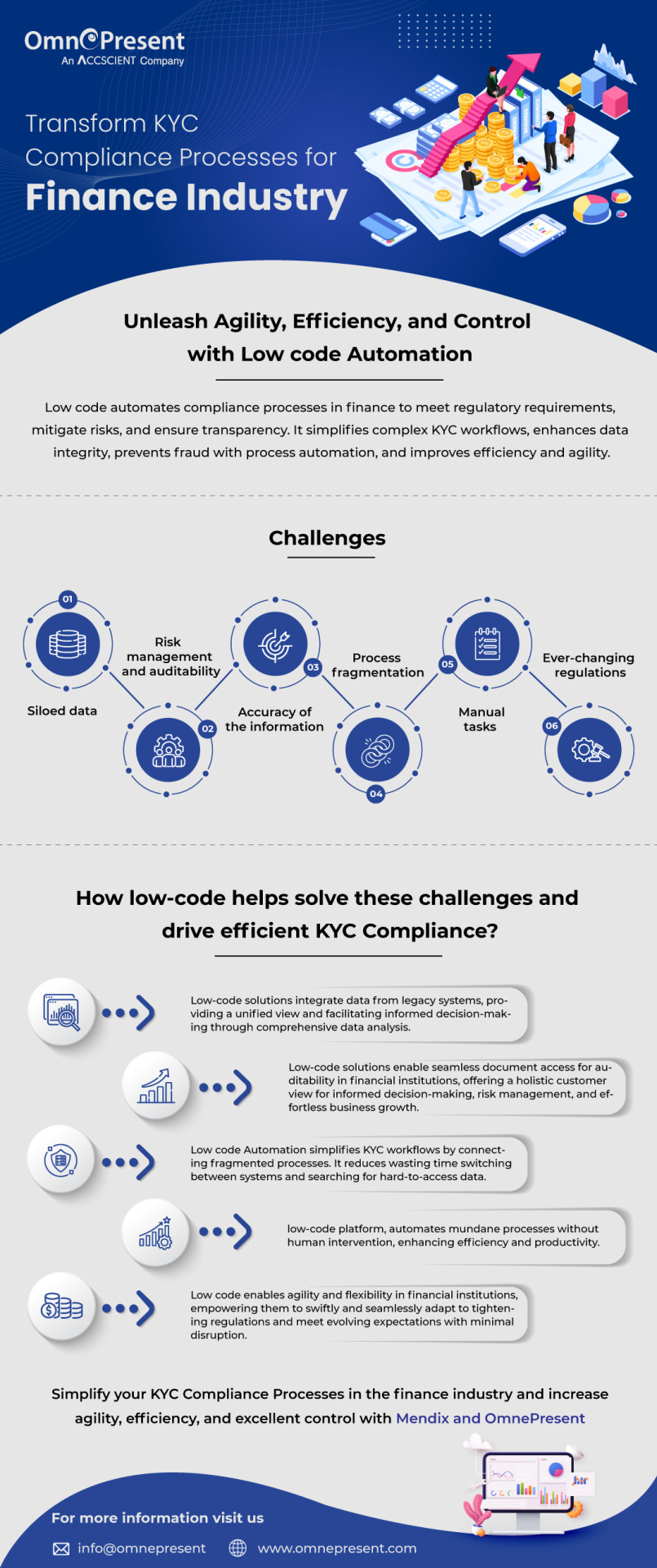
Transform KYC compliance process for finance industry with Low-code
The Know Your Customer (KYC) compliance process plays a vital role in the finance industry, ensuring regulatory compliance and mitigating risks associated with money laundering and fraud. However, traditional KYC processes can be time-consuming, manual, and prone to errors. Embrace low code development and automate KYC process. Explore our insightful infographic to discover new possibilities in KYC and DigitalTransformation. Contact us to drive operational efficiency and regulatory compliance.
#low-code development services#low-code automation#Low-Code#lowcode app development#low-code consulting
0 notes
Text
How to Get Started with React Native Low-Code Mobile App Development
Transitioning into React Native low-code development requires a strategic approach, especially for enterprises new to these technologies. Here’s a step-by-step guide to begin leveraging the full potential of React Native and low-code for your mobile app development.
H2: Step 1: Define Your App's Purpose and Requirements
The first step in any app development process is to clarify the app’s purpose, target audience, and specific features. Knowing exactly what you aim to achieve will guide your choice of low-code platform, define the necessary integrations, and streamline the development process.
Ask questions such as:
What primary problem does the app solve?
Who are the primary users?
What features and integrations are essential for functionality?
H2: Step 2: Select a Low-Code Platform Compatible with React Native
Choosing the right low-code platform is essential. While some low-code platforms are built with general-purpose development in mind, others offer specialized features that integrate seamlessly with React Native. Ensure that the platform you choose supports cross-platform capabilities, allows for advanced API integrations, and provides robust security measures.
Popular low-code platforms compatible with React Native include:
Microsoft Power Apps for enterprise solutions
OutSystems known for scalability and security
Mendix offering rapid prototyping and advanced analytics
H2: Step 3: Assemble a Skilled Development Team
While low-code platforms simplify development, a skilled team is crucial for creating robust, enterprise-grade applications. Ideally, your team should include:
A React Native developer to handle any custom coding
UI/UX designers to ensure a seamless user experience
Quality assurance (QA) testers for rigorous testing across devices
Project managers to keep the development process on track
H2: Step 4: Design the User Interface (UI) with Low-Code Components
Many low-code platforms provide pre-built UI components, templates, and themes that simplify the design process. Start by selecting a UI structure that aligns with your brand and user expectations. Customize these elements to enhance the user experience and align the app visually with brand standards.
H1: Optimizing React Native Low-Code Apps for Better Performance
Once the app is in development, focus on optimizing it to achieve the best possible performance. React Native and low-code development together provide ample opportunities for performance enhancements, ensuring a smooth experience for end-users.
H2: Use Asynchronous Functions
One of React Native’s strengths is its support for asynchronous functions, which helps handle tasks like data fetching, user interactions, and animations without slowing down the user interface. Incorporate asynchronous code wherever possible to improve loading times and keep the app responsive.
H2: Minimize Resource Usage
Keeping the app lightweight enhances performance. Remove any unnecessary libraries, optimize image sizes, and only use essential third-party plugins. This approach reduces app size, cuts down on load times, and keeps the application efficient, especially for users on lower-end devices.
H2: Implement Lazy Loading
Lazy loading is a technique where components or resources are loaded only when they are needed. For large applications, this prevents unnecessary elements from loading all at once, improving initial load speed and memory usage.
H1: Measuring the Success of Your React Native Low-Code App
Once your app is live, assessing its performance is critical. Define metrics that align with your app’s goals to measure its effectiveness and user engagement. Here’s how to evaluate your app’s success:
H2: Track Key Performance Metrics
For a mobile application, key performance indicators (KPIs) might include:
Daily active users (DAU) and monthly active users (MAU) for tracking engagement
Retention rate to measure user satisfaction
Conversion rate for apps with e-commerce features
Load time and responsiveness to evaluate performance
H2: Gather User Feedback
User feedback provides direct insight into how the app is being received. Encourage users to leave reviews, use in-app surveys, or gather feedback through customer support. Analyze this feedback to identify areas for improvement.
H2: Monitor Performance Analytics
Utilize analytics tools like Google Analytics for Firebase or Mixpanel to monitor user behavior within the app. These platforms provide real-time insights into user activity, showing which features are popular and which may need refinement.
H1: Continuous Improvement in React Native Low-Code Development
App development does not end at launch. Continuous improvement ensures that the app remains relevant, competitive, and meets user expectations.
H2: Regularly Update App Features
Based on user feedback and emerging technology trends, periodically update the app’s features. Feature updates not only improve user satisfaction but also encourage existing users to continue using the app.
H2: Keep Up with Platform Updates
Both React Native and low-code platforms frequently release updates, including security patches and performance enhancements. Stay updated with these releases to ensure your app remains stable, secure, and efficient.
H2: Integrate New Technologies
Adopting new technologies like Artificial Intelligence (AI), Machine Learning (ML), and Augmented Reality (AR) enhances the app’s value proposition. React Native and low-code platforms increasingly support these technologies, allowing you to add cutting-edge features without starting from scratch.
H1: FAQs Continued – Deep Dive into React Native Low-Code Development
To further clarify common queries, here are some additional frequently asked questions about React Native low-code mobile app development.
H2: What is the primary advantage of using React Native with low-code for mobile development?
The main advantage is accelerated development speed without sacrificing quality. React Native provides a versatile framework that works across platforms, while low-code platforms reduce coding requirements, enabling faster delivery of high-quality apps.
H2: How does low-code development address the shortage of skilled developers?
Low-code development reduces the dependency on skilled developers by providing a simplified, visual development interface. Non-technical team members can also contribute to app creation, allowing companies to bridge skill gaps and reduce hiring costs.
H2: Can I customize low-code components to meet specific app requirements?
Yes, most low-code platforms allow for customization through JavaScript or specific APIs. When combined with React Native, you can add advanced features or make significant changes to meet unique requirements, providing the flexibility needed for tailored solutions.
H2: How do low-code platforms and React Native handle large data sets?
Low-code platforms with built-in data management and API support facilitate handling large data sets by connecting to databases or data warehouses. React Native’s support for data caching and asynchronous processing also ensures that the app performs well with extensive data handling requirements.
H2: Is low-code development limited to small or medium-sized projects?
No, low-code development has evolved significantly and can now support complex, large-scale projects, especially when combined with a powerful framework like React Native. Many enterprises use low-code platforms to build mission-critical applications that are scalable and robust.
Final Thoughts: Embracing Efficiency and Innovation with React Native Low-Code Development
In a competitive business environment, enterprises need agile solutions to stay ahead. React Native low-code mobile app development is a game-changing approach, offering speed, flexibility, and cost-effectiveness without compromising on quality. By harnessing the power of React Native and low-code, businesses can meet the growing demand for digital solutions that work seamlessly across platforms.
This combination empowers enterprises to innovate efficiently, reach broader audiences, and maintain app relevance with ease. Whether launching customer-facing apps, internal tools, or industry-specific solutions, React Native and low-code pave the way for an agile, responsive, and future-ready approach to app development. Embrace this forward-thinking strategy to ensure your business remains competitive in today’s dynamic digital landscape.
Read more:
Wave maker
Rapid application development platform
Low code platform Enterprise software for application development
Low code application development platform or Low code platform for application development
What is Low code app development platforms
Composable low code isvs
Java-based low-code platform
Composable isvs
RAD studio-Rapid application development software platform
APAAS-application platform as a service
Cloud application development platform
Legacy application modernization services
React-native cross-platform mobile application development platform
Compare Wavemaker vs Outsystems vs mendix vs power apps — low code alternatives and its pricing
New application development platform
Rapid application development model
Low-code for consumable Banking and financial Low-code platform solutions
Internal api vs external apis
Rapid application development vs SDLC
Custom application development platform
Embedded banking and Finance, Low-Code and the Emerging Face of Adaptability
BAAS-Banking as a service
Composable Low-code banking solutions
Telecom low code platform
Alternative to Xamarin and Cordova
Wavemaker
Legacy application modernization platform
Cross-Platform React Native Mobile App Development
1 note
·
View note
Text
In the realm of mobile innovation, mastering the art of app development is crucial for businesses striving to engage users effectively and stay ahead in the digital landscape. This guide delves into the world of low-code app development with Gate6, offering a streamlined approach to creating innovative mobile solutions. With Gate6's expertise in low-code development, businesses can harness the power of intuitive platforms to build custom mobile applications rapidly, without extensive coding knowledge or resources.
0 notes
Text
Low-code/No-code: The Future of Software Development?
Low-code/no-code (LC/NC) platforms are software development tools that allow users to create applications without having to write code. These platforms use a variety of techniques, such as visual drag-and-drop interfaces and pre-built components, to make software development accessible to everyone. LC/NC platforms have a number of advantages over traditional software development methods. First, they are much faster and easier to use. Second, they are more affordable, as users do not need to hire expensive developers. Third, they are more flexible, as users can quickly and easily modify their applications without having to write any code. LC/NC platforms are being used by a wide range of organizations, from small businesses to large enterprises. They are being used to develop a variety of applications, including websites, mobile apps, and business process automation applications. Here are some of the benefits of using low-code or no-code platforms:
Faster development: LC/NC platforms can significantly reduce the time it takes to develop an application. This is because users do not need to write any code, and they can use pre-built components to quickly and easily create their applications. Lower costs: LC/NC platforms are more affordable than traditional software development methods. This is because users do not need to hire expensive developers. Greater flexibility: LC/NC platforms are more flexible than traditional software development methods. This is because users can quickly and easily modify their applications without having to write any code. Increased accessibility: LC/NC platforms make software development accessible to everyone, regardless of their coding skills. This means that businesses of all sizes can now develop custom software applications.
How Appson Technologies Can Help Appson Technologies is a software company that specializes in low-code and no-code development. The company offers a variety of services to help businesses of all sizes develop custom software applications using LC/NC platforms. Appson Technologies can help businesses to:
Choose the right LC/NC platform: There are many different LC/NC platforms available, and choosing the right one can be difficult. Appson Technologies can help businesses choose the right LC/NC platform for their needs. Develop custom software applications: Appson Technologies can help businesses develop custom software applications using LC/NC platforms. The company has a team of experienced LC/NC developers who can help businesses create applications that meet their specific needs. Integrate LC/NC applications with existing systems: Appson Technologies can help businesses integrate their LC/NC applications with their existing systems. This ensures that their LC/NC applications can work seamlessly with their other systems. Support and maintenance: Appson Technologies offers support and maintenance services for LC/NC applications. This ensures that businesses can keep their LC/NC applications up-to-date and secure.
Conclusion Low-code and no-code platforms are the future of software development. They are making software development faster, easier, more affordable, and more accessible to everyone. Appson Technologies is a software company that specializes in low-code and no-code development. The company can help businesses of all sizes develop custom software applications using LC/NC platforms. If you are interested in learning more about how Appson Technologies can help you develop custom software applications using LC/NC platforms, Contact Now https://appsontechnologies.in
#it staff augmentation#staffargumentationservices#mobile app developer company#mobile application services#mobile app developers#mobile application development#lowcode#no code#developer#development#javascript#reactjs#coding#software
0 notes
Text

#lowcode#software#technology#trending#low code development#low code app development platform#low-code#low code
0 notes
Text
Mastering Power Apps: Streamlining Workflows with ExecutionContext and Shared Variables
Boost Power Apps with executionContext! Use setSharedVariable & getSharedVariable to pass data across events, ensuring consistency in workflows. Streamline complex processes like approvals, cascading updates, and more! #PowerApps #Dynamics365 #LowCode
The executionContext object in Power Apps provides developers with robust control over event handling in model-driven applications. One of the key features of this object is the ability to store and retrieve shared variables using setSharedVariable and getSharedVariable methods. These methods enable data to be passed across different event handlers, creating a seamless flow of information within…
0 notes
Text
LowCode Developers in Singapore

In today’s fast-paced digital world, businesses require quick, scalable, and cost-effective solutions to stay ahead. Low-code development has emerged as a revolutionary approach, enabling companies to build applications efficiently without extensive manual coding. At Equative Solutions, we pride ourselves on providing top-tier LowCode Developers in Singapore, helping businesses unlock their true potential with agile and innovative applications.
What Is Low-Code Development?
Low-code development is a streamlined software creation process that uses visual interfaces, drag-and-drop tools, and pre-built components. This approach significantly reduces the need for traditional coding, enabling faster application development while maintaining high levels of customization and functionality.
Why Choose Equative Solutions for Low-Code Development?
Expertise in Low-Code Platforms Our developers are proficient in leading low-code platforms, ensuring tailored solutions that align perfectly with your business goals.
Rapid Development and Deployment With low-code techniques, we cut down development time, allowing your business to deploy applications quickly and efficiently.
Cost-Effective Solutions By reducing reliance on extensive coding, Equative Solutions provides affordable application development without compromising on quality.
Scalability and Flexibility Low-code applications are designed to scale with your business, accommodating growth and evolving needs effortlessly.
Focus on Innovation Our team specializes in creating intuitive and forward-thinking applications that enhance productivity and customer satisfaction.
Benefits of Hiring LowCode Developers
Accelerated Time-to-Market With shorter development cycles, your business gains a competitive edge by launching applications faster.
Enhanced Collaboration The visual nature of low-code platforms fosters collaboration between developers, stakeholders, and non-technical teams.
High Adaptability Low-code applications can be easily modified to accommodate new business requirements or market trends.
Reduced Technical Debt Simplified development processes and reusable components minimize future maintenance costs.
User-Centric Designs Our low-code developers focus on creating intuitive, user-friendly applications that enhance user experience.
Applications of Low-Code Development
Custom Business Solutions: Tailor-made applications for inventory management, CRM, and workflow automation.
E-Commerce Platforms: Fast and scalable solutions for online stores and payment systems.
Mobile Applications: High-performing, responsive apps for both Android and iOS platforms.
Data Integration Tools: Seamlessly connect and manage data across various systems.
Why Singapore-Based Companies Need Low-Code Solutions
Singapore, known for its thriving business ecosystem and tech-driven economy, demands innovative solutions to keep up with rapid advancements. Low-code development empowers businesses to remain agile, reduce operational costs, and meet the growing expectations of a digital-first consumer base.
Partner with Equative Solutions Today
Equative Solutions brings unparalleled expertise in low-code development, making us a trusted partner for businesses in Singapore. Our team of LowCode Developers in Singapore ensures your applications are delivered on time, on budget, and aligned with your vision.
For More Details, You Can Visit Us:
Lowcode Software Engineers in Singapore
Pega Developers in Singapore
Appian Developers in Singapore
0 notes
Text
Low-Code = Faster, Flexible Web Apps!
Low-code is the future for modern businesses! Quick development, lower costs, and better collaboration between IT and business teams. Embrace the #LowCode revolution and get products to market faster!
👉 Read more:
#webdevelopment#webappdevelopment#webapp#webapplicationdevelopmentcompany#digitaltransformation#appdevelopment#webdev#innovation#businessgrowth
0 notes
Text
The Future of Software Development: Trends to Watch Out For
Unlock the future of software development with the latest trends in AI, low-code platforms, DevOps, and more! Stay ahead of the curve and discover top verified companies through TrueFirms, the world's largest B2B staff augmentation marketplace. With over 41,000 service providers across 88+ countries, TrueFirms connects you to the best in the industry. Explore insights into cloud-native development, edge computing, and Progressive Web Apps (PWAs) for innovative solutions. #SoftwareDevelopment #AI #DevOps #CloudComputing #TrueFirms #TechTrends #LowCode #QuantumComputing #PWAs #Cybersecurity
#software#information technology#software development#software developers#software development future#custom software development#software development services
0 notes
Text

Transform BFSI with LowCode 💼! Speed up app development, slash costs, and boost customer satisfaction. From banking to insurance, see how innovation is being fast-tracked. Lead the digital charge!
0 notes
Text
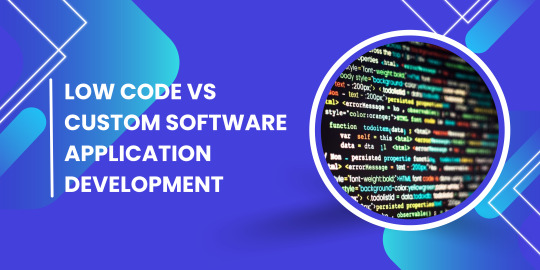
In the world of app development, choices matter. Low Code for speed or Custom Software for precision? Find your path in our latest blog! 🚀📖 Our latest Blog - https://greyspacecomputing.com/low-code-vs-custom-software-application-development/ #AppChoices #Greyspacecomputing #Customsoftware #Lowcode #nocode #digitaltransformation #software #technology #automation #workflow #mobileapps #coding #worksmart #outsystems #appdevelopment #innovation #angular #softwaredevelopment #workato #ux #projectmanagement #javascript #developer #worksmartnothard #businessimprovement #processimprovement #code #workflowmanagment #solutionsforbusiness
#low code#custom software development#app developing company#mobile application development#app development#mobile app company
1 note
·
View note
Link
#lowcode app development#LowCode#workflow automation#Low Code No Code#Low code Platform#customer facing app#lowcodeexpert
0 notes
Text
#ok so I tend to work in the kind of tech job that maintains vital infrastructure and is entirely invisible until nobody in a whole country
#can use a card to pay for groceries or take out cash
#or the phones stop working or power goes off to half a town #and even in this corner I frequently feel like my entire industry is run by drunk children#we are not a stable and secure industry#we are not a lifehack to profitable longterm employment
#we are as fucking chaotic as every other industry under late stage capitalism
#and we also do not have infinite jobs
#Plus quite frankly half the problems in the fucking tech industry could be solved if
#my fellow motherfukers actually had some decent liberal arts education
#some philosophy and sociology and psychology and history
#we might be marginally less likely to invent the torment nexus every five minutes
#jesus fuck but I hate 'learn to code' as universal advice
#also watch out coz lowcode systems are replacing a lot of basic ass app development lul


49K notes
·
View notes
Text

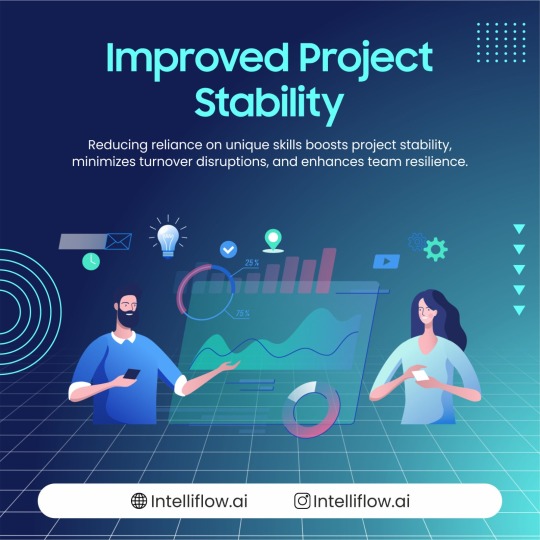
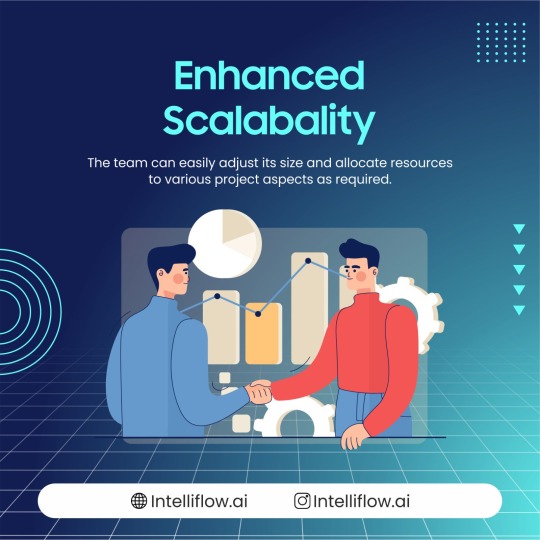
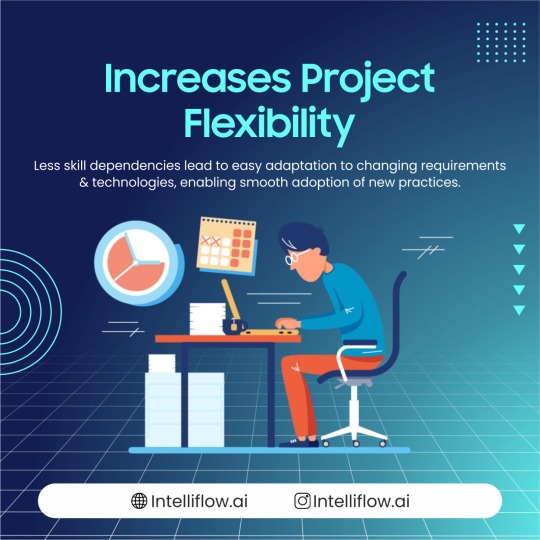

✨ Transform Your App-Building Dreams into Reality with IntelliFlow! 💡💻
Democratize Technology and dive into the world of app creation without worrying about coding skills! 🙌📱
🚀 Whether you're a citizen developer or a seasonal developer, IntelliFlow will empower you to create powerful apps that captivate and inspire. 🌟💪
💡 Don't let the complexities of coding hold you back! IntelliFlow offers a user-friendly interface that turns your ideas into fully functional apps in no time! ⌛✨
⚡⚙️ Unleash your inner app-building genius and witness your visions come to life, one line of code at a time! 💥💻
🔐 Join the IntelliFlow revolution and be part of the generation that thrives on turning dreams into reality! 🌈🚀
For more click on www.intelliflow.ai or Email us on [email protected]
#LevelUpWithintelliFlow #DigitalTransformationWonders #SeamlessTransition #EffortlessWorkLife #BusinessDomination #DreamBigBuildBigger #CodeLessCreateMore #LimitlessPossibilities #LowCode #NoCode #IntelliFlow
0 notes